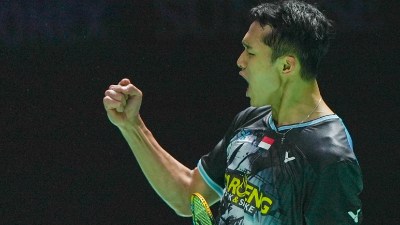Thackeray barred from contesting polls
NEW DELHI, JULY 28: The Shiv Sena today suffered a major setback when its supremo Bal Thackeray was disenfranchised and disqualified from...

NEW DELHI, JULY 28: The Shiv Sena today suffered a major setback when its supremo Bal Thackeray was disenfranchised and disqualified from contesting elections for committing corrupt practices by misusing religion during an assembly by-election in Maharashtra in 1987.
Acting on the recommendation of the Election Commission, President K R Narayanan issued a notification under the Representation of People8217;s Act which said 8220;I8230;..Do hereby decide that Bal Thackeray should be disqualified for a period of six years from December 11, 1995.8221;
Consequently, the Shiv Sena chief is also disqualified from exercising his vote in any election under Section 11A.
A report from Mumbai quoted chief electoral officer of Maharashtra as saying that Thackeray8217;s name had been deleted from the electoral rolls in Mumbai.
Meanwhile, reacting to the notification, Thackeray said there was no question of challenging it.
8220;I really pity a democracy in which one8217;s right to vote is taken away8221;, Thackeray said in a statement here.
8220;It is out of question to challenge the decision of the President and the Election Commission8221;, Thackeray said.
He said it was for President Narayanan to decide whether it was appropriate to deny a citizen his voting right in a democracy.
8220;The people and the country would be greatly obliged if the President and the EC invoke their powers and consider proposing a new law that does not debar citizens from voting in elections8221;, he said.
The Presidential notification issued on July 17 cited the opinion given by the EC that Thackeray should be disqualified for having committed corrupt practices under the provisions of the RP Act for a period of six years from the date of the Supreme Court8217;s order of December 1995.
The opinion was given by Chief Election Commissioner M S Gill and Election Commissioner J M Lyngdoh after the Sena had objected to the other commissioner GVG Krishnamurty being on the bench.
Under Article 1032 of the Constitution, the President is bound by the advice of the EC on matters relating to disqualification.
Thackeray was named by the Bombay High Court in its order on an election petition against the victorious Shiv Sena candidate Ramesh Yashwant Prabhu in Vile Parle constituency in Mumbai in December 1987 whose election was set aside by the court in April 1989 on the ground of corrupt practices.
Thackeray was also found guilty of having committed corrupt practices along with his party candidate.
The Supreme Court in December 1995 dismissed an appeal filed by the Shiv Sena chief against the high court order following which the opinion of the Election Commission was sought on the question whether Thackeray should be disqualified and for what period.
In the disqualification proceedings before the commission, counsel for Thackeray contended that the three speeches referred to in the high court judgement were made by the Sena leader in November and December 1987, that is more than ten years ago, and those should not be made a ground for his disqualification at this late stage.
He said it was a well known fact that Thackeray had never contested an election and would not do so in future.
8220;It would make a mockery of disqualification proceedings if the EC passed an order of disqualification in vacuum, only in order to pay obeisance to the requirements of a law, which was relevant only for persons contesting elections and not for a person like Bal Thackeray,quot; the counsel said.
The counsel also urged that the proceedings should be dropped by the commission in toto and that in case it felt it just and proper to recommend disqualification, it should be for a minimum token period.
The commission, in its opinion to the President, said the period of operation of any disqualification against Thackeray would take effect from the date of the Supreme Court8217;s order in December 1995 and not from the high court order in 1989.
It agreed with Thackeray8217;s counsel that disqualification under Section 8A of the RPA was not a necessary or automatic consequence of judicial determination of question of a corrupt practice.
8220;quot;But the question whether a person should be disqualified or not, is to be decided on the basis of the nature and gravity of the corrupt practice committed by him, and not on the basis of a surmise whether he would have contested elections or not in future,quot; the EC said.
It said Thackeray had been found guilty of serious corrupt practices under Sections 1233 and 1233A of the 1951 Act and the commission had consistently taken the view that it was bound by the findings of the courts relating to the commission of corrupt practices at elections.
- 01
- 02
- 03
- 04
- 05































